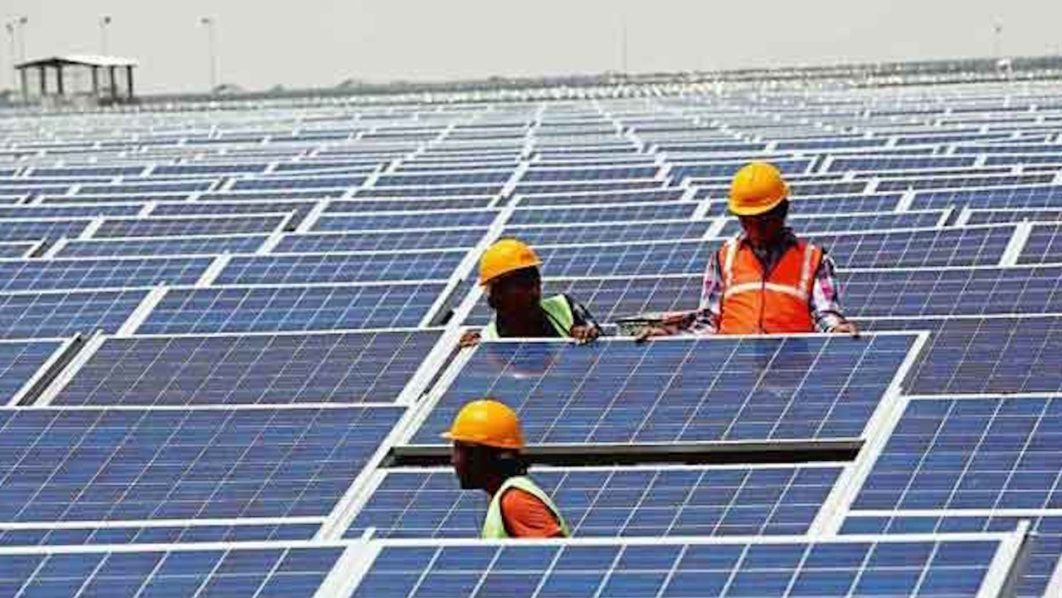
As Nigeria’s energy deficit continues to stifle economic growth and leave millions in darkness, stakeholders have urged the nation to pivot towards renewable technologies.
They argued that only by embracing sustainable energy solutions can Nigeria lay the foundation for a future resilient to be able to reduce power shortages.
The stakeholders, who made the call at the Major Energies Marketers Association of Nigeria (MEMAN) Competency Centre Renewable series on energy transition through solar energy, yesterday, said the integration of solar energy into the country’s energy mix will reduce dependency on fossil fuels and support the country’s climate change mitigation goals.
They argued that by embracing these technologies, Nigeria can create a more resilient and sustainable energy infrastructure that not only meets the needs of its growing population but also aligns with global efforts to mitigate climate change.
They added that solar energy’s thermal storage capabilities are the key technology for balancing supply and demand on the grid, which in turn enhances energy security.
Permanent Secretary, Lagos State Ministry of Energy and Natural Resources, Abiola Kosegbe, said the deficit in the energy needs of Nigerians and Lagosians can’t be over emphasised, hence, the need to advance into renewable technologies to fill the huge gaps experienced in the country.
She stressed that solar, wind, and hydro are not just alternative sources, rather, they are becoming the backbone of a sustainable energy future, noting that the innovations in these fields are driving efficiencies, cost reduction and unlocking new possibilities.
Kosegbe emphasised that wind energy projects are sprouting across the states as energy storage innovations improve the reliability of supply, smart grid technologies optimize energy distribution and electric vehicles gain interaction.
She noted that the adjustments are game changers, which offer the potential to reduce the country’s reliance on fossil fuel, decrease greenhouse gas emissions by 50 per cent and combat climate change in addition to economic benefits, which will enhance energy security and reliability.
“The Lagos solar project has provided reliable and sustainable energy to 172 schools and 11 primary health care centers across the states and the replacement of the batteries to newer lithium-ion technology has improved the reliability of supply to the facilities. The advancement in renewable energy technologies has also provided governments the opportunity to provide power infrastructure to the unserved and underserved and rural communities. Without putting additional pressure on the national grid, which is improving their socio-economic activities and expected to potentially reduce rural-urban migration,” she said.
Head, Renewable Energy Corporate Planning and Strategy at Nigeria Electricity Regulatory Commission (NERC), Jonathan Okoronkwo, called on the government to offer tax breaks, low-interest loans, and grants to reduce the initial capital costs associated with solar energy projects.
Okoronkwo stressed that import duty waivers on solar thermal equipment and components can reduce project costs significantly thereby promoting solar energy adoption in the country.
“The government can provide guarantees and risk-sharing mechanisms to encourage private investment in solar projects. Waiving land acquisition fees and providing expedited environmental clearances can fast-track solar energy project development,” he said.
He added that Nigerians can learn from other countries by implementing strong policy frameworks, providing financial incentives, and fostering public-private partnerships. He emphasised the adoption and promotion of local content, capacity building in ensuring the sustainability and economic benefits of solar energy projects.
Okoronkwo mentioned that in setting up a roadmap for solar energy adoption in the country, there must be target setting, regional focus and phased implementation in place.
He mentioned that as a regulator, NERC would continue to refine and enforce regulations that support the development of solar energy and other renewable energy technologies and also facilitate the creation of a competitive market for renewable energy by streamlining licensing processes and providing transparent tariff structures.
General Manager, Renewable Explorer at TotalEnergies Marketing Nigeria Plc, Omotayo Hassan, disclosed that TotalEnergies has invested $8 billion in renewable energy projects over the past two years.
According to Hassan, the investment underscores the company’s commitment and strategy in embracing more sustainable energy sources as the company has been actively expanding its portfolio in solar, wind, and other renewable energy projects across various regions, including Africa, Europe, and America.






